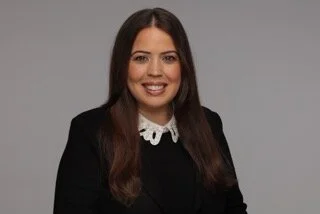The killing of journalists declined markedly in 2019, in sharp contrast to 2018—one of the deadliest on record. But whilst killings fell, impunity for these deaths remains a terrible problem, with justice often elusive.
Since 1992, at least 707 cases of murdered journalists remain unsolved.
EFFORTS TO TACKLE IMPUNITY HAVE BEEN MIXED
There were several high profile domestic prosecutions and investigations in 2019, but results in those cases have been mixed. One important decision involved the killing of Marie Colvin, a foreign affairs correspondent who worked for The Sunday Times and who had covered conflicts in Sri Lanka, Iraq, and East Timor, amongst other places. She was killed in 2012 in Homs, Syria, by a rocket attack.
Her family sought justice for her killing and commenced civil action against the Syrian Arab Republic, claiming the government was responsible. They obtained a landmark judgment from the United States District Court for the District of Columbia (which sits in Washington D.C.).
The judge in her case found that Marie Colvin had been deliberately targeted because she was a journalist and stated that the Assad government was liable for her death. Notwithstanding such a robust judgment, the damages awarded to Marie’s family and attributed to the Assad government, have not been recovered.
Daphne Carauna Galizia, an investigative reporter from Malta, was assassinated when her car was bombed in 2017. It has been generally suspected that her killing was a direct result of her work uncovering fraud and corruption linked to the establishment in Malta.
After widespread concern and condemnation, the government of Malta opened an investigation into her death. However, the investigation has been highly criticized and marred by reports of bias and a lack of independence, with the Prime Minister of Malta being at the center of the claims regarding interference with the investigation. In fact, the investigation has been so badly tainted by undue interference, that it has raised broader issues around judicial independence in Malta itself.
More recently, criminal proceedings have concluded in the trial regarding the infamous killing of Jamal Khashoggi, a correspondent for the Washington Post and a well-known critic of King Mohammed Bin Salman and the Kingdom of Saudi Arabia. He was assassinated last year in the Saudi consulate in Turkey, whilst his fiancé waited for him outside. A court in Saudi Arabia recently sentenced five men to death for Khashoggi’s murder. But the trial has been lambasted by experts, including the United Nations, as little more than a spectacle and show trial. Sarah Leah Whitson, the executive director of the Middle East and North Africa division of Human Rights Watch, said, “there is no doubt that this trial was merely a mechanism to offer a theatre of process devoid of substance.”
THE KHASHOGGI MURDER HIGHLIGHTS THE NEED FOR INDEPENDENT COURTS
The Khashoggi murder, and the way it has been handled by Saudi Arabia, has raised calls for United Nations backed tribunals. In June of this year Agnes Callamard, the Special Rapporteur on extra-judicial executions, published her findings into Khashoggi’s death. Her report found a number of violations of international law and concluded that Khashoggi’s killing was a state killing, for which Saudi Arabia was responsible. This prompted King Mohammad-bin-Salman to give interviews acknowledging responsibility as leader of Saudi Arabia but denying any involvement personally. Little is known about the secretive trial that took place in Riyadh, but as noted above, many have raised serious concerns about the death sentences and the questionable exoneration and lack of investigation regarding more senior officials.
The killing of Jamal Khashoggi led Callamard to recommend that the UN should establish a standing instrument for the investigation of violent crimes against journalists. This “Standing Investigatory and Accountability Mechanism” could investigate crimes and help prepare and facilitate criminal proceedings for the death of journalists (¶470 of her report).
WHY THE KILLING OF JOURNALISTS MERITS AN INTERNATIONAL RESPONSE
Some sort of international mechanism, whether through the standing instrument or through some other protocol, is urgently needed to end impunity against the deaths of journalists. Domestic prosecutions for extra-jurisdictional killings can only go so far. The investigation into the assassinations of Daphne Caruana Galizia and of Jamal Khashoggi reveal the tangible limits of domestic inquiries. And even where an independent inquiry does take place, as with the Marie Colvin civil judgment, it can be difficult or even impossible for the plaintiff to perfect that judgment.
At minimum, domestic investigations and trials need to be independent and competent. But where the state itself is implicated and responsible in the killing of one of its own citizens, then a separate, independent, and likely internationally-based trial in accordance with universally accepted guarantees of due process is needed if it is to gain the requisite accountability and confidence of the victim’s family, as well actually provide justice.
Over time, conceptions of universal jurisdiction should be woven into the accountability framework with respect to the killings of journalists as well. International crimes of the kind warranting universal jurisdiction are commonly defined as those crimes that shock the conscience of the world. The killing of journalists merits this definition—when a journalist is killed, the world loses a witness to unconscionable crimes; and countless unheard voices, including victims to atrocities, are subsequently silenced.
Sophie is a Media Lawyer who advises journalists and programme makers on legal, regulatory and ethical issues which can often arise when covering controversial or contentious issues for news programmes and documentaries. Sophie is also studying part-time for an LLM in international human rights and has a particular interest in freedom of expression issues, international criminal law, women’s rights and issues regarding race and combating prejudice in society.

